Module Introduction
Social Connection in Context
In 2023, United States Surgeon General Vivek Murthy alerted Americans that rising social disconnection is an urgent public health concern. His advisory report explained that an epidemic of loneliness and isolation poses significant risks not only for our individual well-being but for the well-being of our society. What’s more, loneliness rises between childhood and adolescence–over half of teens experience recurring loneliness when social belonging becomes increasingly important, and connection is vital for healthy development. Social connection is a basic human need and is crucial for our survival.
Listen to U.S. Surgeon General Dr. Vivek Murthy report on our nation’s loneliness and isolation crisis and the healing effects of social connection.
In 2001, researcher Robert Putnam’s book Bowling Alone raised concerns about our deteriorating connections. Putnam explained how declining participation and membership in groups and teams, like bowling leagues or community organizations, parent-teacher associations, or faith congregations, had negative consequences for all of us. Community-building opportunities are where we can share our concerns and have meaningful conversations with people we are familiar with. Such regular contact builds trust and allows us to rely on one another. These in-person and real-time experiences can weave into the fabric of our daily lives the chance to connect, build our support networks, and feel a sense of commitment to one another.
Individual Exploration
What Is Social Connection?
Social connection encompasses our feelings of closeness to others during interactions and within relationships and our sense of belonging within groups. Researchers measure social connection in three main ways.
- Structure: How many family connections or friendships do we have, and are there any links among these relationships?
- Function: Do any of these connections have the capacity to fulfill any needs in our lives, such as providing practical help or emotional support?
- Quality: What are the advantages and drawbacks of the connections we share with others, including factors like relationship satisfaction or strain?
Humans are highly social beings. Being connected and belonging to a group provides nurturance and protection from harm. The social connections for babies and young children are usually primary caregivers and close family members. As children age, it is developmentally appropriate for children and adolescents to make connections with peers and others outside of their immediate family network. Ideally, adults have strong connections with close family and friends (bonding capital) and strong connections outside their immediate network (bridging capital).
Decades of research have shown that people with stronger social connections tend to live longer compared to those with weaker social connections. Strong connections to caregivers who provided safety, stability, and nurturance early on in life is a protective factor against general health problems and mental distress following multiple adverse childhood experiences (ACEs), like neglect, abuse, and household challenges. Our social connections can make flourishing possible.
Social Connection in Childhood
Our early childhood experiences with social connection can profoundly impact our lives. Research on early attachment—the unique, loving bond between children and their caregivers—suggests that a key part of developing secure and loving relationships is spending time with our children to support their needs and emotions. Secure attachments involve parents becoming a secure base from which children can explore the world and a haven to return to for safety and comfort.
Securely attached children tend to have higher self-esteem, show better self-control, and perform better in school. Children who experience more loving relationships with their parents also tend to be more compassionate and helpful toward others later in life. The empathy, love, kindness, and compassion that our children develop can support them in building positive relationships with others. What’s more, secure attachments can set us up with lasting benefits for our health and growth—people who grow up without these loving bonds may experience adverse health impacts such as immune system dysfunction and chronic illness.
Beyond social connections within the family, childhood friendships are essential to well-being. Having just one friend can help children be more invested in their schoolwork and protect them from being bullied. Friendships across ethnicities are especially valuable and can help kids be more adaptable and socially confident. For example, children with cross-ethnicity friendships tend to be better liked by other kids, be more self-confident, have a more positive mood, and feel safer at school.
Social Connection in Parenthood
About one-third of parents feel chronically lonely, which can be detrimental to both our well-being and the well-being of our children. What’s more, parents of neurodivergent children tend to feel even more socially isolated. For example, fathers of children with autism tend to be lonelier and have less social support than other fathers.
Like all parents, strong social connection can be a transformative way to nurture fathers’ well-being. Researchers found that social support seemed to protect fathers who had had difficult childhoods. Among dads with greater adverse childhood experiences (ACEs), like abuse or witnessing domestic violence, those with higher social support had lower cortisol—a hormone that is secreted in the body as a response to stress—than those with lower social support. They had about the same cortisol level as those without difficult childhoods.
These findings are significant in light of a recent American Survey report, which showed that men have far fewer social ties overall compared to only a few decades ago. In 2021, only 27% of men said they had at least six close friends, while 55% said so in 1990. Many men, and especially fathers, may be suffering from “friendship recession,” which can be detrimental to their health and happiness. While prenatal and parent-and-me groups are widely available and socially acceptable for moms, many dads would benefit from similar opportunities to foster social ties, which can help them cope with stressful parenting experiences.
What helps moms build stronger social connections? In a 2015 study exploring the keys that contribute to well-being in mothers, the researchers found that four essential personal supports nourished moms:
- Unconditional acceptance: Do you feel seen and loved for the person that you are?
- Reliable comfort: When deeply distressed, do you feel comforted in the ways you need?
- Authenticity in relationships: How much of the “self” do you show to others—is your “outer self” very much the same as your “inner self”?
- Friendship satisfaction: How satisfied do you feel about the frequency of visiting with your friends?
It seems that moms don’t have to travel far to nurture a network of supportive relationships. Research shows that moms who connect often with other moms in their neighborhood tend to have greater well-being. Moms who have frequent and positive contact with one another feel more like they belong in the community, and in turn, they feel they receive emotional support, help, and advice from their peers. Further, those moms who feel supported by other neighborhood moms feel more satisfied with their daily lives. Social support for parents leads to greater emotional well-being and resilience in both parents and children.
Nurturing Social Connection and a Support Network
In her recent book, Platonic: How the Science of Attachment Can Help You Make—and Keep—Friends, researcher Marisa Franco shares how we can cultivate better friendships. Listen to her findings below.
Franco offers practical ways to nurture meaningful social connections. If you want to make friends, consider these few tips:
- Take action: Put yourself in an environment where people meet regularly, assume that you’re underestimating how much people like you, open up to people in the group, and invite someone to meet up.
- Be vulnerable: Take a chance to share the “truest parts” of yourself. This shows trust and care to someone, inviting them to show you their capacity for love.
- Find ways to be generous: Share a meal, offer support to help them with their goals, spend time together, or take them to a doctor’s appointment.
- Show love: Greet a friend with affection, tell them you’re thinking of them, and celebrate their good news.
Of course, parents are busy, especially when they already have limited social networks to support their children and are working long hours. Reaching out can be challenging, but practitioners working with parents can use these insights to offer opportunities to foster and support these types of interactions. We can share this guidance with parents and encourage them to feel at ease by practicing these tips during parenting workshops and circles. Being a parent has both highs and lows. It is crucial for parents to know that we’re not alone and to connect to others who can lift us up when we’re experiencing the hard parts of parenting.
Reflecting on Social Connections
Social connections are vital to our lives. Take a moment to reflect on your social network and its role in your life before you bring the learning in this chapter to the parents you work with.
Read the statements below and ask yourself these questions:
- How much do you agree or disagree with each of the statements?
- What do these statements make you aware of about your existing social connections?
- Do any of these statements prompt you to see fulfillment and opportunities for growth in your social connections?
- There are several people that I can talk to when I feel lonely.
- I am willing to spend time to support general community activities.
- There are people I interact with who would help me fight an injustice.
- I interact with people who remind me that everyone in the world is connected.
- I talk to people who make me curious about other places in the world.
- I interact with people who make me feel like part of a larger community.
- There are people I can turn to for advice about making important decisions.
Reread the statements above as you seek to understand the presence or absence of social connections among the parents you support professionally.
- How much do you think the parents you work with agree or disagree with each statement?
- What strengths are in the community that support connection among parents?
- What could the community provide to help foster stronger social networks among parents?
Practices to Foster Social Connection
Now that you have been introduced to this topic, you can explore practices to nurture social connection. The first is a “Practitioner and Parent Practice.” Use it to nurture your well-being. Next, share the same practice with parents to guide them in fostering their well-being. The second is “Parent-Child Practices,” which you can share with parents. They are social connection activities for parents and children.
Practitioner and Parent Practices
First, try this step-by-step activity for yourself and then guide the parents you support through the practice. During and after the activity, take a moment to pause and notice your thoughts, sensations, and feelings. Guide the parents you work with in doing the same.
Feeling Connected: A writing exercise to foster connection and kindness.
Parent-Child Practices
You can guide parents on these step-by-step activities to support social connection. During and after the parenting activity, encourage the parents to pause to notice their thoughts, sensations, and feelings.
Savoring Moments of Connection with Kids: Reflect on caring memories to feel closer.
36 Questions to Help Kids Make Friends: Help children to build closeness.
Discoveries, Wonderings, and Commitments
- Discoveries
- What are three to five key takeaways about social connection that are most relevant for you personally and professionally?
- How much of a challenge is loneliness or isolation in your community?
- Wonderings
- How can parents in your community respond to the practices to foster social connection?
- What kinds of modifications to the social connection practices would you make to meet the specific needs of the parents in your community?
- Commitments
- What actions do you intend to take based on your learnings about social connection for yourself? For the parents you work with?
- Which social connection practice will you share with the parents you work with? What will you say and do to guide them in trying this practice?
Additional Social Connection Resources
- Podcast: Happiness Break – A Meditation on Pilina: Our Deep Interconnectedness, With Jo Qina’au
- Podcast: Happiness Break – Awe for Others, With Dacher
- Article: Six Ways to Help Your Child Deal with Social Exclusion
- Article: Seven Guidelines for Healthy Social Connection
- Interview: Robert Putnam Knows Why You’re Lonely
Module Resources
This workbook offers parenting practitioners practical lessons and activities to help the reader prioritize cultivating your social and emotional well-being while additionally supporting you in sharing these insights and practices with the parents and families you serve. This workbook includes a chapter on social connection as well as chapters on foundational topics like cultural humility, coparenting, healing and resilience and more.
This is a writing exercise to foster connection and kindness.
Group Facilitation
Before facilitating parent groups, spend time in individual exploration in order to experience and embody the learning. In this tab, you will find:
- A chapter with resources for engaging parents and facilitating parent gatherings. (Chapter from GGSC’s Family Well-Being for the Greater Good: A science based workbook for people who support parents)
- A turnkey revisable slide deck designed to support you in facilitating a parent gathering about cultivating social connections.
- A printable handout for parents to take home that includes information about the importance of social connection for parents and children as well as activities to cultivate social connections.
Module Resources
This chapter provides support for planning and facilitating parent gatherings. It includes information on building community, reducing barriers to participation, creating welcoming environments, group agreements, and more.
This slide deck is a tool that you can edit and use to share resources on cultivating social connection at an upcoming parent night. If you prefer working in Google Slides, you can download a copy of this Google Slide deck to edit: https://bit.ly/3AySB5Q
This handout can be printed and shared with parents. In addition to introducing parents the the benefits of cultivating social connections, this handout includes links to resources on cultivating social connection for parents and for children.

Are you ready to build a kinder, happier school where everyone belongs? Join Greater Good Educators! Explore the science of well-being in a supportive community of educators from around the world. Registration is now open for the 2025-2026 school year!


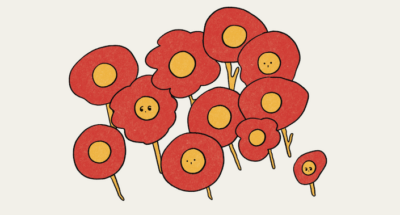
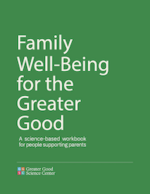
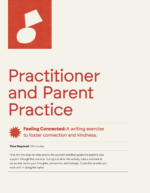
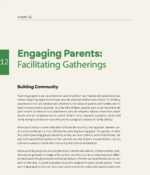
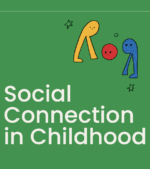
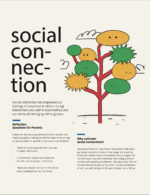
Comments